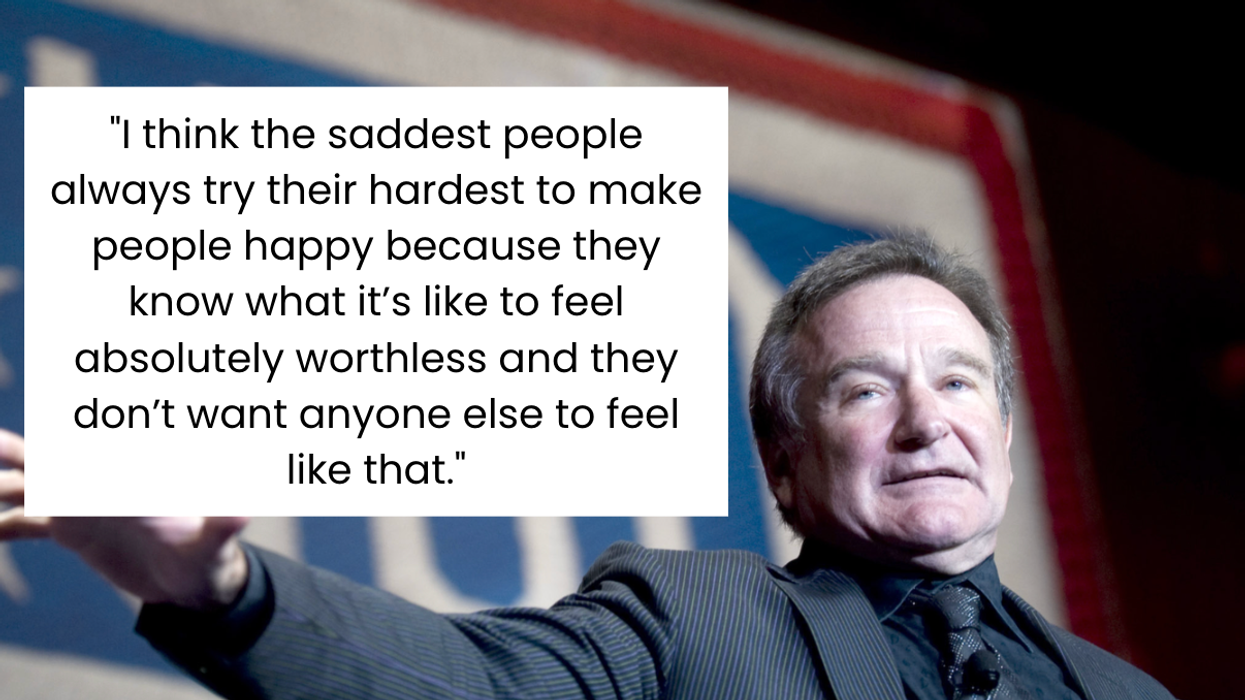What's the next big thing? We answered that question in Issue 025: The Next Big Thing, our latest print issue, with the GOOD 100, a collection of trends pulling us forward. At our launch party in Los Angeles, through our social networks, and in copies of the print magazine, we put the same question to our readers, giving them the chance to help us predict the future with their own declarations of '____ is the new ____.' Here are some of our favorite comparisons (or the best of those that we could publish…).
If you didn’t get a chance to party with us but still want to share your predictions, submit them through the GOOD 100 page. If you need a little something to get you in the psychic mood, we suggest the drink of choice at our launch party, the Mountain Margarita: one part tequila to one part Mountain Dew, topped off with a lime wedge. Go ahead; it’s GOOD for you.
















 Robin Williams performs for military men and women as part of a United Service Organization (USO) show on board Camp Phoenix in December 2007
Robin Williams performs for military men and women as part of a United Service Organization (USO) show on board Camp Phoenix in December 2007 Gif of Robin Williams via
Gif of Robin Williams via 
 People on a beautiful hike.Photo credit:
People on a beautiful hike.Photo credit:  A healthy senior couple.Photo credit:
A healthy senior couple.Photo credit:  A diverse group of friends together.Photo credit:
A diverse group of friends together.Photo credit:  A doctor connects with a young boy.
A doctor connects with a young boy.  Self talk in front of the mirror.Photo credit:
Self talk in front of the mirror.Photo credit:  Lightbulb of ideas.Photo credit
Lightbulb of ideas.Photo credit 

 Superstructure of the Kola Superdeep Borehole, 2007
Superstructure of the Kola Superdeep Borehole, 2007 

